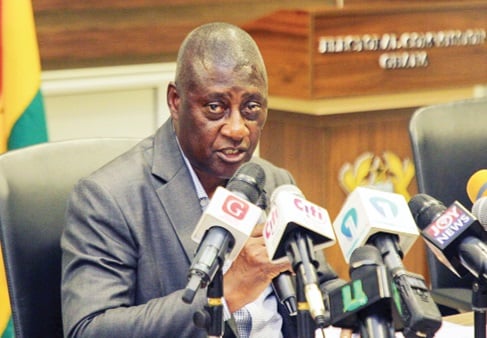The Electoral Commission (EC) of Ghana has announced key details regarding the polling stations for the upcoming presidential and parliamentary elections, generating significant discussion and controversy within the political landscape. According to a statement issued by Samuel Tetteh, the EC’s Deputy Chairman in Charge of Operations, the total number of polling stations has been set at 40,647, with an additional 328 designated specifically for special voting. This indicates a comprehensive approach by the EC to ensure that citizens can participate adequately in the electoral process. The announcement comes amidst heightened political tension as various parties gear up for the elections.
In conjunction with the polling station announcement, the EC also revealed plans for the printing of notices of poll and ballot papers, which was confirmed through a communique on October 9. This logistical preparation is fundamental for ensuring that the elections proceed smoothly. However, this announcement has faced criticism primarily from the National Democratic Congress (NDC), illustrating the contentious nature of the electoral environment in Ghana. In response to these developments, the NDC convened a meeting with other political parties on October 10 to address their concerns about the process, indicating a collective effort among opposition parties to scrutinize the EC’s actions.
During the meeting held by the NDC and other political parties, significant demands were made regarding transparency in the electoral process, specifically concerning the ballot statistics. The NDC insisted on receiving detailed information about the ballot statistics before the printing process begins. However, the EC’s leadership suggested that the parties should directly confirm these statistics with the respective printing houses that have been designated for the printing tasks. This response from the EC reflects a degree of detachment from the political parties’ demands, which could potentially escalate tensions further.
Clarifying the situation, the EC released a subsequent statement on October 11, emphasizing that the printing focus was primarily on the notices of poll, not the actual ballot papers. This distinction is crucial as it aims to dispel any misinformation or misunderstandings regarding the nature of the electoral preparations. The assurance that the notices are being prioritized might help to quell some of the concerns raised by political parties, though mistrust can linger in an environment as charged as the current electoral context.
The back-and-forth between the EC and the NDC showcases the friction that often characterizes electoral commissions’ relationships with political entities. As the electoral season approaches, ensuring transparency and fostering trust between the EC and political parties will be vital for maintaining the legitimacy of the election process. The dynamics observed through the NDC’s fierce opposition and demands reveal how crucial it is for independent electoral bodies to navigate these relationships delicately to uphold public confidence in the electoral system.
As Ghana prepares for this significant event, it is essential for all stakeholders, including the EC, political parties, and civil society, to foster an atmosphere of cooperation and transparency. Such efforts will not only ensure a fair electoral process but also enhance the democratic principles that underpin the nation’s governance. Moving forward, continued scrutiny of the EC’s actions, combined with genuine engagement from all political players, will be pivotal in securing a successful and credible electoral outcome that reflects the will of the Ghanaian populace.


